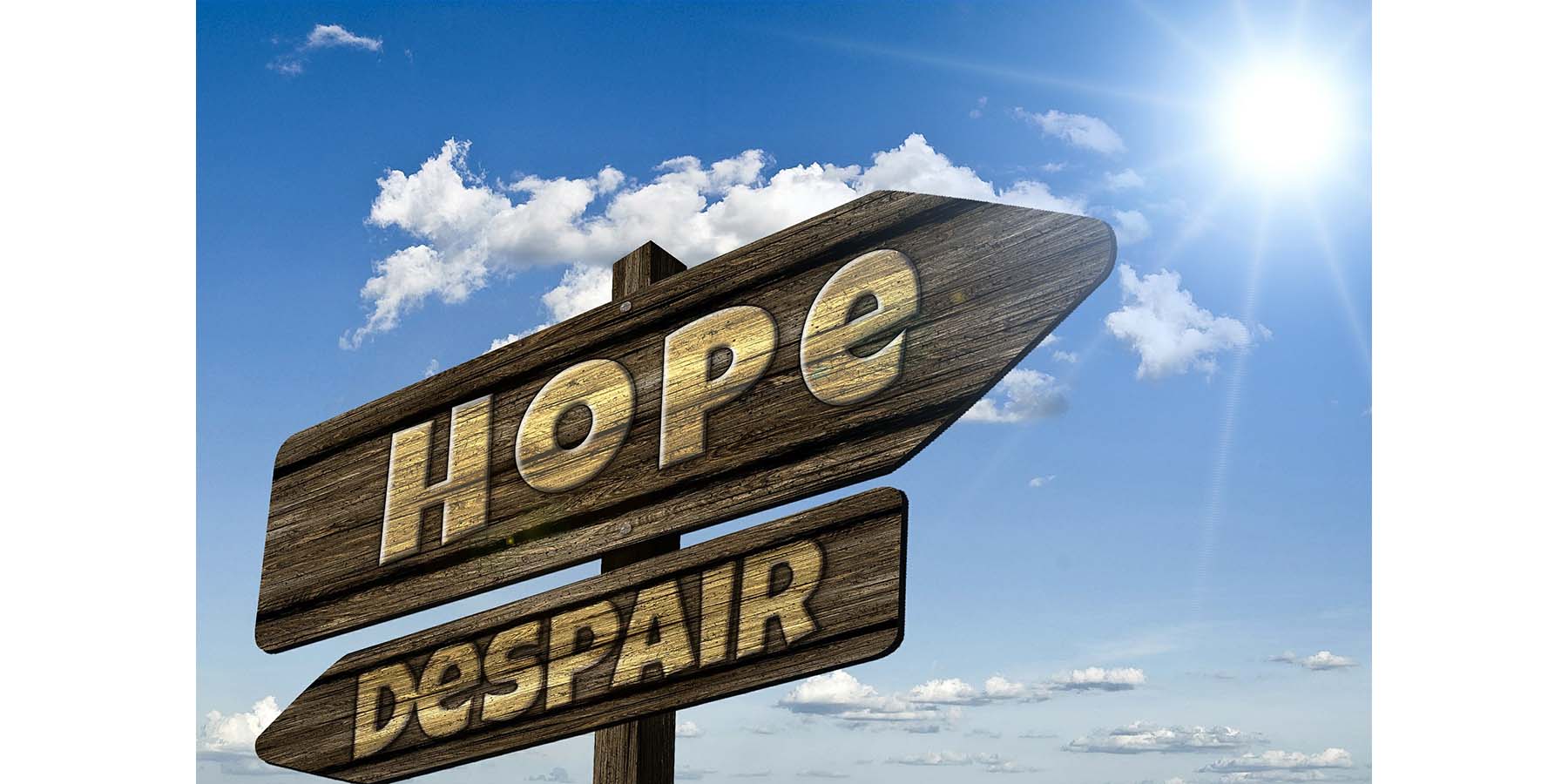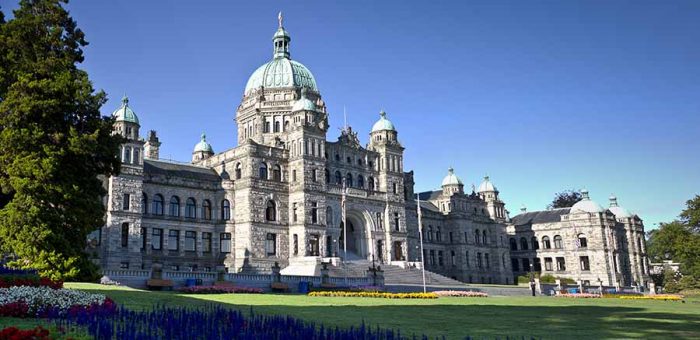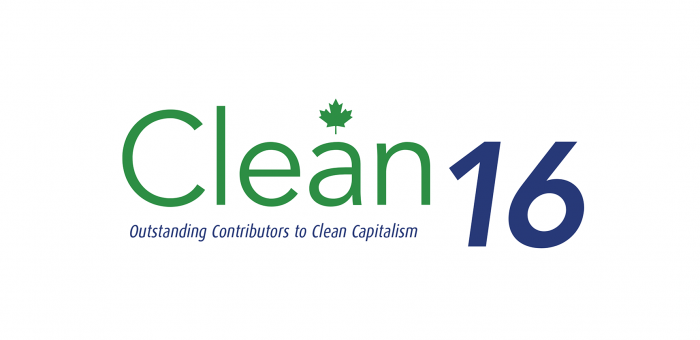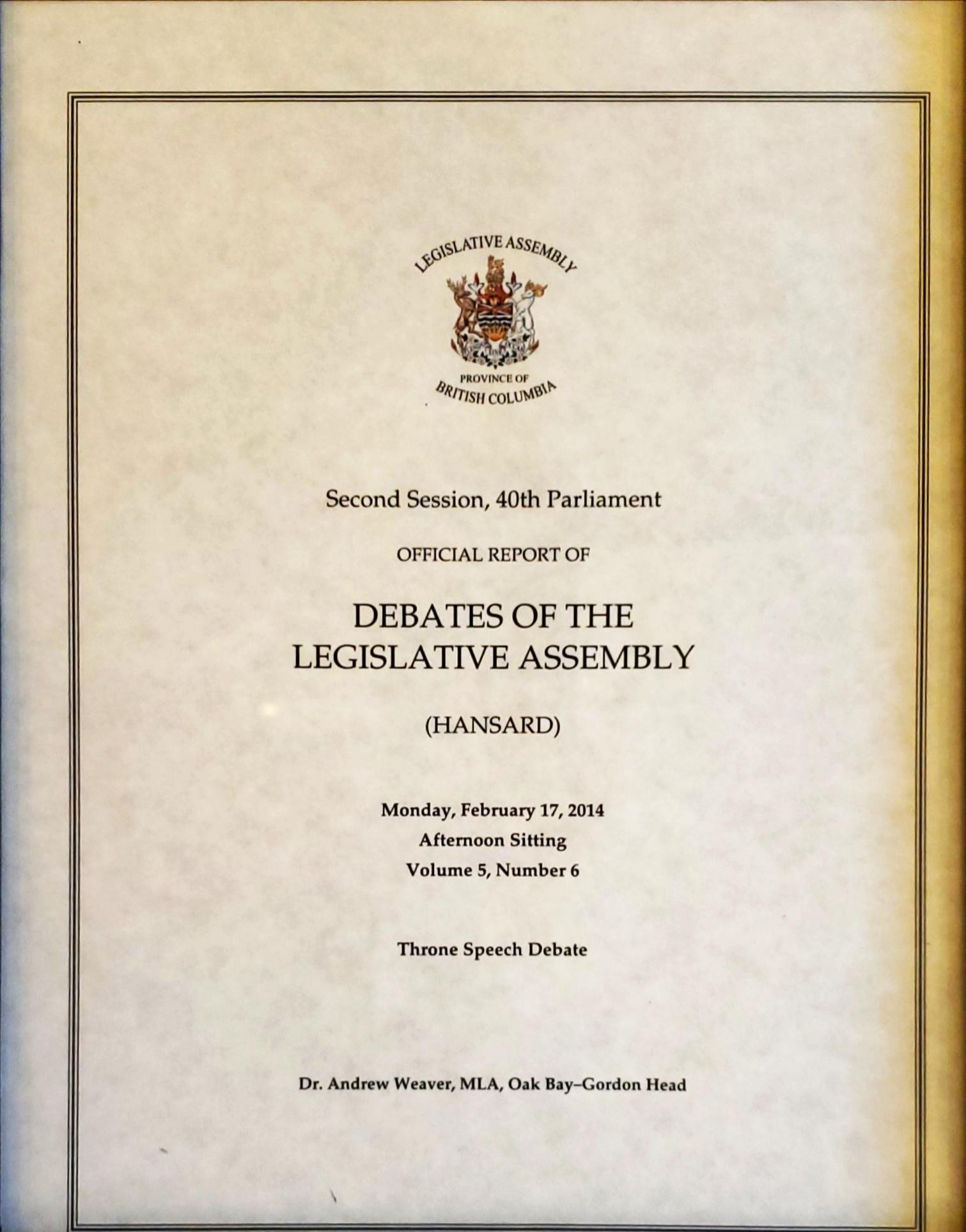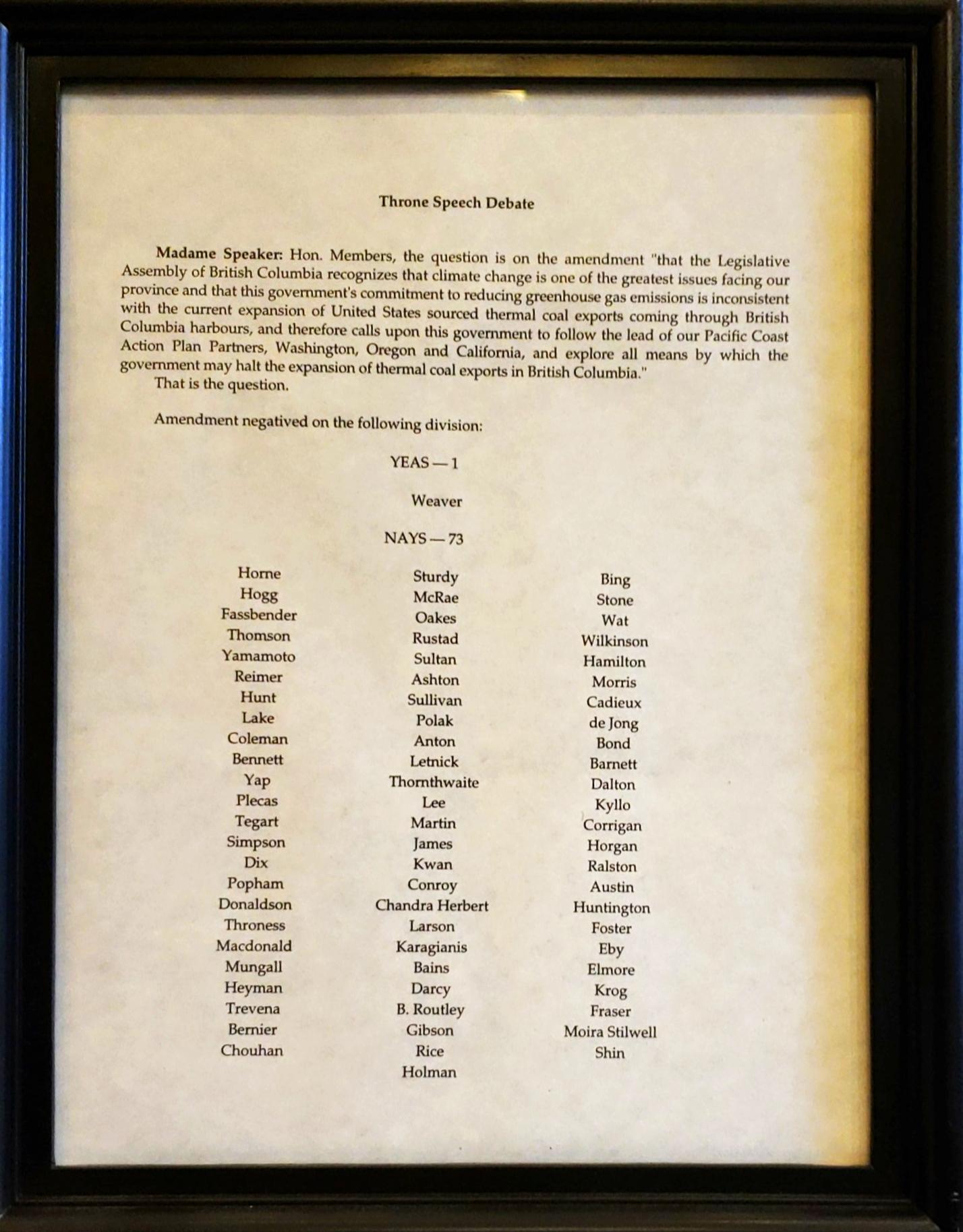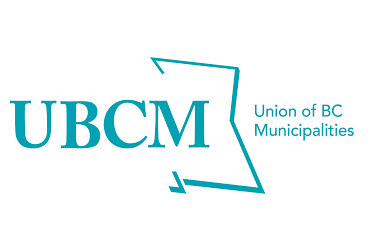Celebrating Connections Place on World Mental Health Day
Today in the legislature I had the pleasure of introducing Jackie Powell along with Sister Patricia Donovan, Sister Judi Morin, Cherry Lynn Brown, Bruce Sanders, Joe Devison, Naomi Beck, Owen Jones, Mike Mori, Tula Rivera, Peter Fitzpatrick and Sonia Garza, who have been instrumental in setting up Connections Place. As noted on their website:
“Connections Place is a Greater Victoria, BC-based community that helps people with mental illness achieve self-reliance, and use their skills and talents to get their lives back on track.“
I first met Jackie Powell in 2014 when she came to me as a constituent with a vision. She wanted to realize a goal of providing a day program for people with mental health challenges. I was incredibly impressed with her presentation on the need for a program modelled on the Clubhouse International program. Jackie has persevered and built support for her initiative and kept me informed of her progress for the last five years.
Connections Place opened up its doors in March of 2019 and now has about 100 members, with more coming onboard every week. I’m absolutely thrilled to see her vision become a reality today.
Below I reproduce the video and text of the Statement I gave celebrating the importance of Connections Place in our community.
Video of Statement
Text of Statement
Today is World Mental Health Day. There are many individuals and organizations doing incredible work in this field across our beautiful province. But today I want to speak about just one that I had the pleasure of visiting this past summer. Connections Place is a recently opened Clubhouse International in the greater Victoria area. The Clubhouse model is an evidence-based model of psychosocial rehabilitation for people who are struggling with a mental illness.
Isolation is a major factor in mental illness, and a clubhouse gives a people a reason to wake up in the morning, a place to come to, to have a purpose, to be welcomed, needed and wanted, to be part of a community of caring people. I witnessed that firsthand and put behind those words my experience to say that they are exactly as I read. A small group of trained staff work alongside members to guide them to full social inclusion.
Connections Place is not alone in B.C. Their mentor clubhouse, Pathways in Richmond, has been operating for over 30 years successfully and helping the lives of many. It’s been named as one of Canada’s top 10 impact charities. This is clearly a model that works.
One in four people struggle with a mental illness in the greater Victoria area. That’s about 95,000 people. Almost a quarter of that number will have a serious and permanent mental illness — almost 25,000 people — which can cut life expectancy by up to 20 years. Families, employers and emergency services are all impacted.
Connections Place opened up its doors in March of 2019 and now has about 100 members, with more coming onboard every week. I welcome the addition of Connections Place to our community. This was Jackie Powell’s vision when I first met her in 2014. I’m absolutely thrilled to see her vision become a reality today.
Announcing I will not seek re-election in 2021; asking party to prepare for a leadership contest
It is after a great deal of thought and reflection that I am announcing today that I will not be seeking another term as the MLA for Oak Bay-Gordon Head. I am making this announcement now so that the party has enough time to start the process of electing a new leader in preparation for the next provincial election.
When I first decided to leave my post as a Canada Research Chair in climate modelling and analysis at the University of Victoria to run for public office in 2013, I did so out of a sense of civic duty. I had watched with dismay as our province slipped from being a climate leader to climate laggard. The B.C. Green Party is where I felt I could make the most difference, but I could not imagine the many ways we would transform the B.C. political landscape.”
Below I reproduce the text and video of my speech along with the accompanying media release.
Video of Speech
Text of Speech
On April 23, 1910 at the Sorbonne in Paris, Theodore Roosevelt gave a speech on the responsibilities of being a good citizen. In it he urged people to have the courage to strive to make a difference.
In that address he said:
“It is not the critic who counts; not the man who points out how the strong man stumbles, or where the doer of deeds could have done them better. The credit belongs to the man who is actually in the arena, whose face is marred by dust and sweat and blood…”
I would echo that sentiment in my Climate and Society course at the University of Victoria when my students came to me distraught about global warming.
Vote for representatives who are willing to do the hard work to address climate change and support their policies, I’d tell them.
Or, if there are none on the ballot, consider running yourself.
Watching with dismay as our province slipped from being a climate leader to a climate laggard I eventually – and reluctantly – realized I needed to follow my own advice.
It’s long been my belief that those who seek public office should do so out of a sense of civic duty rather than choose it as a lifelong career.
In stepping aside from science and academia to enter the political arena, in 2013, I hoped to correct our emissions trajectory and prove that doing so would also benefit our economy.
The foundation of this minority government is climate action, best represented by our work on CleanBC – our economic plan to build a thriving, climate-responsible and climate-resilient society.
I have long said it is time we re-imagined the climate crisis not solely as an environmental problem, but as an incredible opportunity for innovation, creativity, and the advancement of our society.
While there is still a long way to go, CleanBC offers us the best starting place we’ve ever had, and I want to thank Minister Heyman and Premier Horgan for their earnest cooperation and collaboration on helping put that road map back in place.
I have taken significant time this summer to reflect with my family on the reasons why I sought elected office, as well as why I sought the leadership of the BC Greens in the first place.
It is with all of this in mind that I announce that I will not be seeking another term as MLA for Oak Bay-Gordon Head, and have asked the Chair of the Provincial Council to start the process of electing a new leader for the BC Greens.
This is not an easy decision for me – there is a long way to go.
At the same time I feel a deep responsibility and pride for the role the BC Greens have played in getting the province back on track to meet its climate commitments, and to reframe climate change as an economic opportunity – instead of a purely environmental issue.
Millions of people, including many thousands on the lawn of the legislature and a hundred thousand in Vancouver two Fridays ago, are demanding politicians stop talking and start acting to reduce greenhouse gas emissions.
This incredible movement is being led by youth, the ones who must live with the consequences of the decisions we make, and their momentum is growing.
This is also one of the main reasons why I believe it is time for the BC Greens to elect a new leader. It is time to let another generation take the lead.
I have given everything I have to this work. Soon it will be time for me to step aside and allow a new leader to take what I have accomplished and make it better.
Take it further.
And adapt it to the opportunities and challenges that the future will bring.
I intend to remain as leader of the BC Greens until a new leader is elected, which I expect will occur in the early Summer of next year, sometime after the next Spring legislative session.
In the months ahead I will continue to work on a number of key climate policies, including an ambitious climate accountability act, and doing everything I can to ensure that Clean BC is fully implemented.
I will continue to push the government to prioritize the policies that will allow us to reach our 2030 greenhouse gas reduction target.
I will continue to work with my colleagues in the BC NDP to accomplish what was set out in our Confidence and Supply Agreement.
Nothing that I am announcing today changes my commitment to work within this agreement and to see the delivery of our shared agenda.
Stability of this government moving forward is my primary objective.
For the party – and for anyone that may seek leadership of this party – this is an incredible opportunity. The BC Greens have never been as organized, nor seen such widespread support, as they do today.
Looking more broadly, we can all witness the rise of Green parties across the world and certainly here in Canada.
No point in history has ever had so many elected Greens in our country, and all signs point to even more being elected after the next Federal election.
The BC Greens have demonstrated that they are not only a positive influence on the legislature – but also an essential component of seeing real change in the policies that govern our province.
It was only after Greens were elected that MSP reform was committed to by all parties;
that BC banned corporate and union donations at all levels of government;
that our attention returned to what is in the best interest of all British Columbians, rather than the vested interests of just a few;
that an overhaul in the integrity and governance of this legislature commenced.
We have seen this minority government advance significant change on professional reliance, minimum wage, lobbying reform, the emerging economy and innovation.
We have seen this minority government advance significant change on protecting wild salmon, ridesharing, the environmental assessment process, adult basic education, child welfare, childcare, mental health and the opioid crisis to name just a few.
With environmental challenges mounting, the presence of Green representatives in the legislature has become all the more important.
For example, this past spring every BC Liberal and NDP MLA voted to introduce massive corporate subsidies for a new fossil fuel project in BC — not once — but fourteen times.
That I was unable to convince any of my colleagues in these two parties of the irrefutable contradiction to support this expansion while claiming to stand with the millions who are demanding greater climate action is, in my view, my greatest failing.
But it points once again to the essential role that the BC Greens play in this legislature: challenging the status quo parties to reconcile their words with appropriate actions.
Many of the details concerning the upcoming leadership race will have to wait until our party puts in place the rules for the contest.
I will work with whoever is elected as leader to ensure they have the voice they need to lead our party, including a conversation about representation in the legislature.
I look forward to continuing the work that we have in front of us for the time being and look forward to welcoming a new Leader at some point next year.
Media Release
Weaver announces he will not seek re-election in 2021; asks party to prepare for a leadership contest
For immediate release
Oct. 7, 2019
VICTORIA B.C. – Andrew Weaver, leader of the B.C. Green Party, today announced his decision not to run for re-election as MLA in the next scheduled provincial election in 2021. In preparation, Weaver has requested the party’s Provincial Council begin preparations for a leadership contest to select a new leader. Weaver will continue in his role as leader until a successor has been chosen by the party’s membership.
“It is after a great deal of thought and reflection that I am announcing today that I will not be seeking another term as MLA for Oak Bay-Gordon Head,” Weaver said. “I am making this announcement now so that the party has enough time to start the process of electing a new leader in preparation for the next provincial election.
“When I first decided to leave my post as Canada Research Chair in climate modelling and analysis at the University of Victoria to run for public office in 2013, I did so out of a sense of civic duty. I had watched with dismay as our province slipped from being a climate leader to climate laggard. The B.C. Green Party is where I felt I could make the most difference, but I could not imagine the many ways we would transform the B.C. political landscape.”
History was made when the B.C. Green Caucus agreed to support the province’s first minority government in 60 years through a confidence and supply agreement (CASA).
“We have shown that minority governments can work well. They unite parties on issues of common ground. The foundation of this minority government is climate action, best represented by our collaboration on CleanBC – our economic plan to build a thriving, climate-responsible and climate-resilient society,” Weaver continued. “I have long said it is time we reimagined the climate crisis not solely as an environmental problem, but as an incredible opportunity for innovation, creativity, and the advancement of our society.
“The decision not to run for re-election has not been easy for me. I feel a deep responsibility and pride for the role the B.C. Greens have played in getting the province back on track to meet its climate commitments and to reframe climate change as an economic opportunity – instead of a purely environmental catastrophe.”
B.C. Green Party Provincial Council will meet later this month to put a leadership contest committee in place. This committee will be responsible for recommending contest rules and timeline, eligibility and vetting for Provincial Council.
“Andrew propelled the B.C. Green Party into provincial relevance, and his decades of work as a climate scientist and then as an MLA greatly contributed to what we are seeing now with climate change being at the forefront of the national political conversation,” said Sat Harwood, chair of Provincial Council. “We will miss him as our leader, but his legacy is part of every British Columbian who values clean water and clean air. Andrew is excited for the future because he sees all this energy around tackling climate change; he is leaving the B.C. Green Party well positioned to offer British Columbians a unifying and fair, sustainable and equitable option when they go to the polling station in 2021.
“I expect the leadership contest will culminate at the party’s 2020 convention to be held in Nanaimo from June 26-28, but details regarding the leadership contest, including a launch date, will be released in the coming weeks and months as they are approved by Provincial Council.”
– 30 –
Media contact
+1 778-650-0597
newsroom@bcgreens.ca
Significant moments – Andrew Weaver
Andrew Weaver was elected as the first provincial Green politician in North American in May 2013 for the riding of Oak Bay-Gordon Head.
Weaver was acclaimed as the B.C. Green Party’s leader in December 2015.
During the Spring legislative session in 2016, Weaver introduced legislation that would require post-secondary institutions implement policies regarding sexualized violence. The B.C. Liberal government of the time agreed to support this initiative and introduced an updated version of the legislation that passed into law.
In September 2016, Weaver announced the party would no longer accept corporate and union donations, a major issue in the provincial election that followed.
The 2017 election resulted in the first provincial Green caucus in North America, which also holds the balance of power in the legislature.
Weaver led negotiations with the other parties, eventually reaching a confidence and supply agreement (CASA) with the B.C. NDP.
Notable CASA outcomes include: campaign finance reform, lobbying reform, Innovation Commission, Emerging Economy Task Force, CleanBC, Basic Income Study, Fair Wage Commission, new investments in childcare and early education.
CleanBC is the culmination of Weaver’s efforts to put B.C. back on track as a climate leader. It was announced by Weaver, Environment Minister George Heyman and Premier John Horgan in December 2018. Weaver and Heyman were awarded Canada’s 2020 Clean16 award in recognition of their collaboration in developing CleanBC.
In May 2019, Weaver and B.C. Greens introduced and unanimously passed the first opposition party private member’s bill in the history of the province. This legislation is also the first in Canada to provide a legal framework for businesses committed to pursuing social and environmental goals to incorporate as benefit companies.
The caucus’ second private member’s bill also passed in Spring 2019 also passed unanimously, the Residential Tenancy Amendment Act. Because making everyone feel safe in their home is a nonpartisan issue.
The power of collaboration: climate change policy now front and center in provincial political conversation
Today Minister George Heyman and I had the distinct honour of receiving Clean16 and Clean 50 awards from the Delta Management Group for our collaborative efforts that lead to the creation of British Columbia’s CleanBC economic plan.
As noted on the Clean50 website,
“Canada’s Clean50 annually offers recognition to Canada’s leaders in sustainability for their contributions over the prior two years.”
“The Clean50 Individual awards – or just “the Clean50” are selected from 16 diverse categories that transcend numerous industries, academia, different levels of government, thought leaders and advocates, and are based on accomplishments delivered over the prior two years. The leader in each of the 16 categories is also declared to be part of the Clean16, depicting those 16 Honourees as the top contributor in their respective categories.”
The citation for the award states:
“A climate scientist and a climate advocate walk into a Legislature… They may represent different political parties, but that hasn’t deterred these champions of the environment from close collaboration. The BC MLA and Minister for the Environment have worked together to design “CleanBC,” an ambitious economic plan to build a thriving, climate-responsible and climate-resilient economy through incentives and goals: transitioning to all zero-emission vehicles by 2040, demanding far greater energy efficiency in both new and existing buildings, and investing significantly in training workers for a low-carbon economy. The ultimate goal: a net 40% reduction in BC’s 2007 GHG emissions by 2030. BC once again leads Canada in the fight against climate change.
Dr. Weaver also introduced the Business Corporations Amendment Act (passed unanimously, the first non-government bill to pass into law in BC history), which provides a legal framework for businesses committed to pursuing a triple bottom line to incorporate as Benefit Companies. It is the only law of its kind in Canada.”
Unfortunately I was unable to travel to Toronto with Minister Heyman to accept the award due to my recent bout with vestibular neuritis. Nevertheless, I was able to prepare an acceptance video which I reproduce below.
In the government’s press release, as well as our own press release (reproduced below), both Minister Heyman and I emphasize the power of collaboration. We believe CleanBC and this award are evidence of what political leaders can accomplish when they work together. But that collaboration doesn’t end now.
For CleanBC to be effective, government must implement the first phase of emissions reductions and quickly identify how they will fill in the remaining 25%. And, it must be matched with legislated, ambitious accountability and transparency mechanisms. ‘Trust us’ is not good climate policy. That’s why I have been working with Minister Heyman on the Climate Change Accountability Amendment Act, to be tabled this fall. It will provide an evidence-based foundation to the work done by this government and all to come.
Acceptance Video
Media Release
BC Green Party Leader, Minister recognized for CleanBC collaboration
Climate change policy now front and center in provincial political conversation
For immediate release
October 3,2019
VICTORIA, B.C. – Dr. Andrew Weaver, leader of the B.C. Green Party, and George Heyman, B.C.’s Minister of
Environment and Climate Change Strategy, have received Canada’s 2020 Clean50 and Clean16 honours for
demonstrated leadership in sustainability through the development of CleanBC .
“Over the last two years, my team and I have been working with Minister Heyman to design CleanBC, our
economic plan to build a thriving, climate-resilient society. It has been the hallmark of our minority government
and will continue to be my top priority as we ensure it is fully implemented to reach our 2030 targets,” said MLA
Weaver. “CleanBC is an important starting point and our ambitions must continue to rise. It is time we reimagined
the climate crisis not solely as an environmental problem, but an incredible opportunity for innovation and the
advancement of our society.
“For CleanBC to be effective, government must implement the first phase of emissions reductions and quickly
identify how they will fill in the remaining 25%. And, it must be matched with legislated, ambitious accountability
and transparency mechanisms. ‘Trust us’ is not good climate policy. That’s why I have been working with Minister
Heyman on the Climate Change Accountability Amendment Act, to be tabled this fall. It will provide an
evidence-based foundation to the work done by this government and all to come.
“More than 100,000 British Columbians – many of them children- participated in last week’s global climate strike to
shame world leaders for their inaction and demand better. We need to prove that we hear them. We need to
prove that their BC government cares about protecting their future.
“Receiving this recognition is more than a personal achievement; it represents something much greater than one
climate scientist’s life’s work. Hanging in the B.C. Green office in the legislature is a framed official report from
February 17, 2014, that documents an amendment I brought forward to the Throne Speech debate. It reads,
‘…that the Legislative Assembly of British Columbia recognizes that climate change is one of the greatest issues
facing our province and that this government’s commitment to reducing greenhouse gas emissions is inconsistent
with the current expansion of United States sourced thermal coal exports coming through British Columbia
harbours, and therefore calls upon government to follow the lead of our Pacific Coast Action Plan Partners,
Washington, Oregon, and California, and explore all means by which the government may halt the expansion of
thermal coal exports in British Columbia.’
The amendment failed with 73 nays that day; I was the only yea.
“Today, that political conversation has changed. That photo is now historical record, but it is no longer our future.
Climate change is now a top concern of all British Columbians, and indeed all Canadians, and this minority
government is listening and acting.”
Minister Heyman says their collaboration is evidence of what political leaders can accomplish when they work
together.
“The important collaborative work to develop the real and measurable CleanBC climate and economic plan –
between Dr. Weaver and me and our two parties – is a clear demonstration that legislators can work together to
address critical issues and to respond to the urgency expressed by young people around the world demanding
that we act to secure a safer future,” Minister Heyman said.
The Clean50 awards are presented every year by Delta Management Group, an executive search firm for
professionals working in the environmental sector. Previous Clean16 award winners include Tamara Vrooman,
president and CEO of Vancity, Craig Ryan, director of Social Entrepreneurship at Business Development Bank of
Canada, and Matt Jamieson, president and CEO of Six Nations of the Grand River Development Corporation,
among many others.
Announced annually by Delta Management Group and the Clean50 organization, Canada’s Clean50 Awards
recognize those 50 individuals or small teams, from 16 different categories, who have done the most to advance
the cause of sustainability and clean capitalism in Canada over the past two years. The top recipients in each
category compose the annual Clean16.
“The 2020 Clean16 are truly leaders in sustainability in Canada. Both Minister Heyman and Dr. Weaver have
made significant contributions through CleanBC by working collaboratively to help make B.C. and Canada a better
place,” said Gavin Pitchford, CEO of Delta Management Group. “Canada’s Clean16 awards recognize these
achievements to support a low-carbon future that creates new clean growth opportunities and benefits people.
The competition for the top spot this year in every instance left us with many great choices – and to be selected
from amongst such a strong group of peers is truly a testament to the contribution Dr. Weaver has made to
helping make Canada more sustainable for all Canadians.”
CleanBC is a pathway to a more affordable, safe and sustainable future. CleanBC was developed in collaboration
with the BC NDP government and supports the commitment in the Confidence and Supply Agreement to
implement climate action to meet B.C.’s emission targets.
-30-
Media contact
Macon L.C. McGinley, Press Secretary
B.C. Green Caucus
+1 250-882-6187 | macon.mcginley@leg.bc.ca
Speech to delegates at the 116 th Union of BC Municipalities Convention
Today I was afforded the opportunity to present to delegates at the 116th Union of BC Municipalities Convention in Vancouver. Below I reproduce the complete text (with links) of this speech.
Text of Speech
It’s a great honour for me to be able to once more address you, the delegates to the UBCM.
You know, two weeks ago, and just 15 minutes before I was supposed to give a keynote at the Canadian Propane Association BC Seminar in Langley, I was hit with acute vestibular neuritis which put me in hospital for 5 days.
The irony is not lost on me…but you can imagine how grateful I am to be up and on stage here today.
While I am expected to make a complete recovery in a few weeks, I had to limit my activities which meant that my scheduled meetings with local government representatives this week were all cancelled. For that I sincerely apologize.
In the audience today there are many politicians.
Some of you lean left.
Some of you lean right.
In my case, the vestibular neuritis has left me tilting right and left on a second by second basis but I look forward to stabilizing somewhere in the middle shortly.
The one silver lining in all of this is my incapacitation couldn’t have come at a better time… right at the start of the 2019 Rugby World Cup!
————
There’s a lot of new faces in the crowd this year so for those of you who don’t already know my background I’d like to add that prior to joining the legislature in 2013 as the lone BC Green MLA, I was the Lansdowne Professor and Canada Research Chair in Climate Modelling and Analysis at the University of Victoria.
I served as a Lead Author in the last four United Nations Intergovernmental Panel on Climate Change Assessment reports.
I ran for election in 2013 as I could no longer watch what was happening to our province from the sidelines.
I ran as a point of principle, never actually expecting to get elected (after all no Green Party politician anywhere in Canada had ever before been elected at the provincial level).
I ran on a platform of evidence-based decision-making to counter the decision-based evidence-making rhetoric espoused by so many of our political leaders.
I ran on a platform of ensuring that we focus on the long-term consequences of our decisions instead of solely being fixated on what it would take to get reelected.
I ran to offer British Columbians a vision of social, economic and environmental prosperity grounded in the incredible opportunity afforded us by the challenge of global warming.
And here we are today, two years after the 2017 election delivered a minority government with my two BC Green Caucus colleagues and I holding the balance of responsibility. It’s been a remarkable journey.
Keeping with this year’s theme of ‘resilience and change’, I want to speak to you both as a climate scientist and as a political leader.
In doing so I hope to convince you that each and every challenge our province faces needs to be embraced and thought of as an incredible opportunity for innovation.
And innovation is the foundation of any modern economy.
First, the science.
Since we met last year, a number of sobering reports have been released:
The first was the 2018 IPCC special report in which the world’s leading climate scientists warned there are only a dozen years for global warming to be kept to a maximum of 1.5°C, beyond which even half a degree will significantly worsen the risks of drought, floods, extreme heat and poverty for hundreds of millions of people.
A few months later, Canada’s Changing Climate was published by the Federal government.
The report noted that Northern Canada is warming at twice the global rate and highlighted BC as being particularly vulnerable to drought, glacial loss, sever wildfires, and to sea level rise, which will salinate farm land.
Shortly after that we had the report from the UN Intergovernmental Science-Policy Platform on Biodiversity and Ecosystem Services that stated, in stark terms, that we are in the midst of an extinction crisis with a million species likely disappearing within decades.
The consequences of which would be devastating for ecosystem stability and food production.
Then we got the report from the UN’s special Rapporteur on extreme poverty and human rights.
Professor Alston said the world is on course for “climate apartheid,” where the rich will buy their way out of the worst effects of global warming and the poor will suffer. Even under the best-case scenario, he wrote, hundreds of millions will face food insecurity, forced migration, disease, and death.
Staying the course will be disastrous for the global economy and pull vast numbers into poverty.
Most recently, the province quietly released their Strategic Climate Risk Assessment for British Columbia.
In it, severe wildfires, seasonal water shortages, and heat waves are the three highest-ranked risks facing the province in terms of severity, magnitude, and likelihood. Ocean acidification, glacier mass loss, and long-term water shortages also top the list.
In the span of just a few centuries, Earth has made a transition from a past, when climate affected the evolution of human societies, to the present, in which humans are affecting the evolution of the climate.
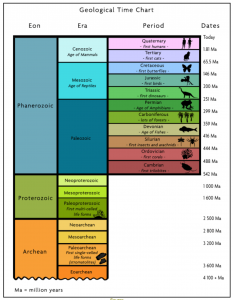 Starting in the late Paleozoic, more than 300 million years ago, and extending through Mesosoic (known as the Age of the Reptiles), the world’s great coal, oil and natural gas reserves were formed. In doing so, carbon dioxide was drawn down from the atmosphere over a period of tens of millions of years.
Starting in the late Paleozoic, more than 300 million years ago, and extending through Mesosoic (known as the Age of the Reptiles), the world’s great coal, oil and natural gas reserves were formed. In doing so, carbon dioxide was drawn down from the atmosphere over a period of tens of millions of years.
Today, we are turning back the clock by returning that carbon to the atmosphere in a matter of a few decades.
As I stated in last year’s address: elected leaders are at a pivotal moment in human history. We are responsible for deciding what path the future climate will take.
That is not something I say lightly. I feel the pressure of that responsibility in everything I do. It weighs heavily on me. But I know I am not alone in that and, while unpleasant, it’s also a good sign.
I can sense, for the first time in my career, that a change in the tide is coming.
In every challenge, there is opportunity. The greater the stakes, the higher the potential. British Columbians are eager for innovation and excited about building a sustainable economy.
Young people, in particular, have made this abundantly clear over the last year.
Millions of students, including many hundreds on the lawn of the legislature last Friday, are demanding elected officials protect their future.
You will die of old age, one sign read, I will die of climate change.
People are ready to support leaders who take climate action seriously.
Change is coming whether we like it or not, so let’s choose to be courageous.
To the opportunities I promised you earlier:
We are immensely fortunate to live in British Columbia. It is quite literally one of the best locations on the planet from which to navigate the climate related challenges ahead.
To start, BC has three strategic advantages over virtually every other region in the world.
- The quality of life and natural environment allows us to attract and retain some of the best and brightest minds from around the globe — we are a destination of choice.
- We have a highly skilled and educated workforce. Our high school students are consistently top ranked internationally. They are smart, well trained and they are ready to go to work. And we have exceptional post secondary institutions throughout our province.
- We have access to boundless renewable energy, fibre and water like no other jurisdiction in the world. We have incredible potential to create clean, renewable energy and forestry sectors to sustain our economy.
Transitioning to a carbon neutral world doesn’t mean going back to the dark ages. It means transitioning to a cleaner, sustainable society where economic, social and environmental concerns are central in all our decision making.
In fact, if we start right now, we stand a decent chance of transforming society without huge disruption.
What I am describing is not an impossible utopia. Every example listed is grounded in current economic trends, scientific evidence, and already established best practice.
We have so much to gain. It’s not just possible that the transition to a clean economy could create jobs. It is inevitable – Jobs that are inspired, important, and valuable. This shift can be the vehicle to deliver a more just, equitable, and healthy society.
To capitalize on these possibilities, we need to start planning beyond the next election cycle. We need to focus on building a new economy that works for all of us — not just the privileged few.
Policies must be based on principles and evidence, not political calculation and opportunism.
And as government leaders we must collectively do everything we can to develop policies that promote, rather than hinder innovation in or economy.
 Over the last two years, my team and I have been working with Minister Heyman to design CleanBC, our ambitious economic plan to build a thriving, climate-responsible and climate-resilient economy.
Over the last two years, my team and I have been working with Minister Heyman to design CleanBC, our ambitious economic plan to build a thriving, climate-responsible and climate-resilient economy.
With no silver-bullet solution to solving climate change, it is a collection of policies, incentives, targets, and regulations that will revive our economy and, if fully implemented, collectively achieve a 40% reduction in GHG emissions (from 2007 levels) by 2030.
It includes transitioning to 100% zero-emission vehicles by 2040, demanding far greater energy efficiency in both new and existing buildings, and investing significantly in training workers for a low-carbon economy.
Governments talk a lot about competitiveness, saying if we ask too much of companies they will leave.
But I have never understood why we want to be competing with other jurisdictions who are willing to sacrifice their clean air, land and water or willing to commit human rights abuses, all in order to see who can extract their resources cheaper and faster.
I believe government should be playing a more active role in supporting the type of economy we want to build. Not simply managing the one we have, ignoring the challenges on the horizon.
I don’t want to drag BC into a race to the bottom by subsidizing the tired, and dwindling industries from the last century.
I want to compete in an entirely different arena – for who can be the best, leanest, most efficient, with the healthiest, happiest citizens.
Thoughtfully designed policies can send signals to the market and spur innovation.
Many companies in BC are already leading the way within their sector.
At the tech summit earlier this year, I had the opportunity to moderate a panel with a number of inspiring companies who are pushing the envelope – creating high quality jobs and harnessing the power of innovation to help us respond to the climate crisis.
MineSense, for example, is one I talk about often because they epitomizes the type of approach I am talking about. Their real-time, sensor-based ore sorting technologies allow them to analyze a rock face and determine whether it is economical to ship it to the crusher, or if it should be put aside for fill.
Investing in innovation has made their process smarter, more efficient, and saved them money along with saving water.
They can export their product, but they have also been able to export the technology.
 Another inspiring BC company is General Fusion. General Fusion is a truly groundbreaking company, at the forefront of clean tech.
Another inspiring BC company is General Fusion. General Fusion is a truly groundbreaking company, at the forefront of clean tech.
Based in Burnaby, they are working towards commercializing affordable, abundant, safe and emission-free electricity from fusion energy. This company has the potential to transform the world through transforming our energy supply.
Carbon Engineering is a Canadian company that has developed innovative technology to create liquid fuels from atmospheric carbon dioxide, who set up shop in Squamish a few years ago.
Their potentially revolutionary technology also has the ability to capture and sequester human produced carbon dioxide directly from the atmosphere. A BC company that has become famous around the world.
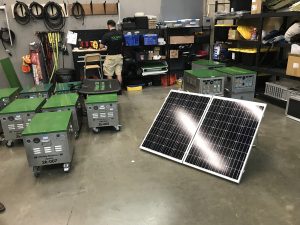 Then there are Portable Electric and Corvus Energy, two Vancouver-based success stories delivering mobile and marine electricity storage systems, respectively.
Then there are Portable Electric and Corvus Energy, two Vancouver-based success stories delivering mobile and marine electricity storage systems, respectively.
Portable electric’s battery power stations are a clean alternative to diesel generators are already being used to power everything from festivals to film sites.
And let’s not forget Unbuilders, a growing team of highly skilled tradespeople who have recognized opportunity in deconstruction.
Instead of demolishing old homes, they deconstruct them piece by piece and salvage vast quantities of historical old growth and other used building materials.
The sale of the residuals means it ends up costing less to deconstruct an old building than demolish it.
What an incredible example of innovation in the building sector. And it is all BC-based.
I could talk about my favorite BC-based, 21st Century companies all day, but noting the time, I’ll just mention one other.
Structurlam: What an amazing example of a thriving BC based business in the value-added forest sector.
 Their two main products Glulam and Crosslam are 100% engineered-wood laminations that are used as replacements in building construction for steel and cement, respectively.
Their two main products Glulam and Crosslam are 100% engineered-wood laminations that are used as replacements in building construction for steel and cement, respectively.
And they are committed to source lumber from BC-based companies like Kaleshnikoff Lumber Co. Ltd., a family owned business located in Tarry’s BC that was started in the late 1930’s by the children of Doukhobour immigrants who came to Canada in 1911.
These companies form the foundation of a strong, resilient, economy. Prosperity and jobs remain local as they they build on our strategic strengths ensuring that value added, technology and innovation are what we export.
Local governments, too, are already proving what is possible.
Last year, 50 local governments reported achieving carbon neutrality.
Last summer, the City of Surrey broke ground on the first community centre in North America to achieve Passive House certification.
In the District of Lillooet, community leaders implemented a plan to improve road safety for pedestrians and cyclists by expanding infrastructure and enhancing bike lanes.
Cities including Victoria, Vancouver, and Tofino are leading the way on taking action on single use plastics – a policy, the courts have made clear, that requires provincial leadership.
Paving the way for you to succeed is something I take very seriously.
I have been working with Minister Heyman on the Climate Change Accountability Act, to be tabled this fall, in the hopes that it, too, will bolster and support your ability to tackle this head on.
I look to you, as local leaders, to pick up the work I have started and make it better. Take in further, adapt it to the opportunities and needs in your community.
You know better than anyone how to be a champion for your constituents. I am asking you today, to be courageous, ambitious, and innovative.
Think further into the future and govern not just for your term, but for your children and grandchildren.
This is the moonshot of our generation.
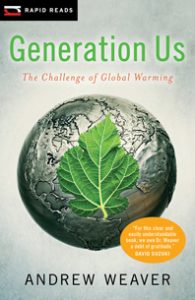 I’d like to end by reading the concluding paragraph of my book Generation Us: The Challenge of Global Warming that I wrote nearly a decade ago:
I’d like to end by reading the concluding paragraph of my book Generation Us: The Challenge of Global Warming that I wrote nearly a decade ago:
“Global warming has been branded an environmental problem. But it is really an economic and social problem. We’ve spent too much time living within a culture of global warming fear and denial. It’s time to recognize global warming for what it is: the most self-empowering issue we will ever face. Every consumer of energy is part of the problem. Every person is therefore part of the solution. We are entering an age of creativity and innovation unlike any that modern society has experienced before. Rather than fearing this change we need to embrace it. And the change starts in each and every one of our households. The time for Us is now.”
Thank you.
The Democracy & Me Art Contest is now open to all BC children & youth
The Legislative Assembly of British Columbia and the Lieutenant Governor of British Columbia have co-sponsored The Democracy & Me Art Contest.
 As noted in the contest poster to the right, it encourages K-12 students to create visual artwork that explores the importance of community and democracy.
As noted in the contest poster to the right, it encourages K-12 students to create visual artwork that explores the importance of community and democracy.
Contest winners will receive a trip to Victoria and their artwork will be displayed in the provincial Parliament Buildings.
Artwork must be submitted by January 31, 2020.
Please visit the The Democracy & Me Art Contest website for further details on how to submit your entry.

